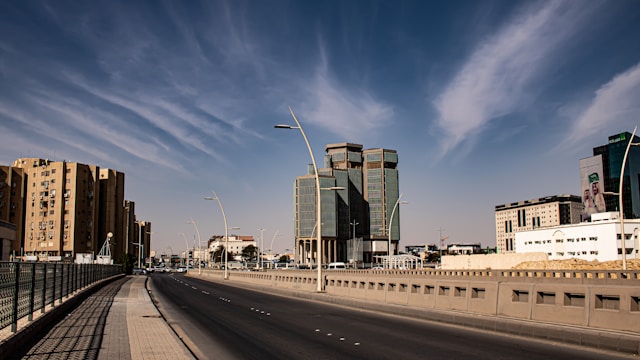The kingdom’s digital marketplace thrives, reflecting a robust shift towards a diversified economy
Riyadh – Saudi Arabia’s e-commerce landscape continues to flourish, with the latest figures revealing a notable 9.4% year-on-year increase in business registrations for the third quarter of 2024. The Ministry of Commerce’s recent report outlines a total of 39,769 new registrations, showcasing the Kingdom’s dedication to fostering a digitally-driven economy.
Leading the charge, Riyadh registered an impressive 16,274 new businesses, reinforcing its position as the epicentre of commercial activity. Makkah followed with 10,023 registrations, while the Eastern Province contributed 6,328 to the total count. Even the Madinah and Qasim regions made significant strides, logging 1,897 and 1,302 registrations, respectively.
Embed from Getty ImagesThis growth is a clear indication of Saudi Arabia’s commitment to diversifying its economy, especially as it aims to position itself among the top 10 nations globally in e-commerce expansion. The surge in registrations underscores the pivotal role e-commerce plays in the Kingdom’s economic transformation.
The report also highlighted a remarkable 62% increase in the issuance of commercial records across the country compared to the same quarter last year. Riyadh stood out once more, with a total of 53,150 new records issued. Makkah and the Eastern Province followed closely, with 24,482 and 19,840 registrations, respectively. The Qassim and Asir regions saw 6,973 and 6,542 registrations, further demonstrating widespread growth.
In total, Saudi Arabia issued 135,909 commercial records in the last three months, pushing the total number of active commercial registrations in the Kingdom to over 1.5 million. The Ministry of Commerce’s quarterly bulletin serves as a critical resource for understanding the Kingdom’s evolving commercial environment, highlighting its ongoing growth and diversification.
In a bid to bolster confidence in the business landscape, the report introduced five key regulatory systems. These include the Commercial Register System, Trade Names System, Product Safety System, Standards and Quality System, and the Measurement and Calibration System. Such initiatives aim to streamline operations and enhance the business climate, aligning with Saudi Arabia’s broader economic objectives.
Notably, the bulletin showcased substantial growth in various sectors, all in line with Saudi Arabia’s Vision 2030 aspirations. Areas such as financial technology (fintech), artificial intelligence, and electronic gaming experienced significant expansions, with the fintech sector alone reporting a 27% increase in registered companies, reaching a total of 3,593 by the end of Q3. Riyadh again led this segment with 2,224 registrations, followed by Makkah (721) and the Eastern Province (361).
Other sectors also demonstrated promising growth. Financial and insurance activities, alongside sports and entertainment education, reported strong performance. Additionally, industries associated with sports clubs, tourism organisations, and relaxation centres saw considerable advancements. The market research and opinion polling sectors experienced notable progress as well, reflecting the Kingdom’s strategic focus on fostering innovation and sustainable development.
These developments not only highlight the vibrancy of Saudi Arabia’s commercial landscape but also the government’s unwavering commitment to nurturing a dynamic and diversified economy. The continued rise of e-commerce, coupled with advancements across various sectors, positions the Kingdom on a promising trajectory as it approaches its ambitious Vision 2030 goals.
The figures and insights provided in the Ministry of Commerce’s bulletin serve as a testament to Saudi Arabia’s resilience and adaptability in an ever-evolving global marketplace. The Kingdom is well on its way to becoming a digital powerhouse, harnessing technology and innovation to propel its economic future.
